Filter by
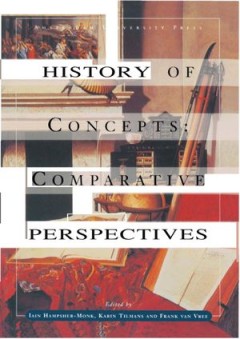
History of Concepts
Although vastly influential in German-speaking Europe, conceptual history (Begriffsgeschichte) has until now received little attention in English. This genre of intellectual history differs from both the French history of mentalités and the Anglophone history of discourses by positing the concept - the key occupier of significant syntactical space - as the object of historical investigation. C…
- Edition
- -
- ISBN/ISSN
- 9789053563069
- Collation
- -
- Series Title
- -
- Call Number
- -

Medicine and Society, New Perspectives in Continental Philosophy
This volume addresses some of the most prominent questions in contemporary bioethics and philosophy of medicine: ‘liberal’ eugenics, enhancement, the normal and the pathological, the classification of mental illness, the relation between genetics, disease and the political sphere, the experience of illness and disability, and the sense of the subject of bioethical inquiry itself. All of the…
- Edition
- 1
- ISBN/ISSN
- 978-94-017-9870-9
- Collation
- VIII, 323
- Series Title
- Philosophy and Medicine
- Call Number
- -
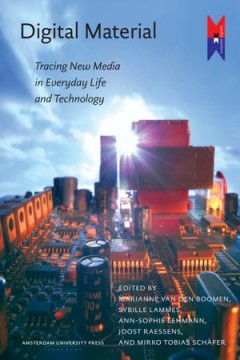
Digital Material
Three decades of societal and cultural alignment of new media have yielded a host of innovations, trials, and problems, accompanied by versatile popular and academic discourse. New Media Studies crystallized internationally into an established academic discipline, and this begs the question: where do we stand now? Which new questions are emerging now that new media are being taken for granted, …
- Edition
- -
- ISBN/ISSN
- 9789089640680
- Collation
- -
- Series Title
- -
- Call Number
- -
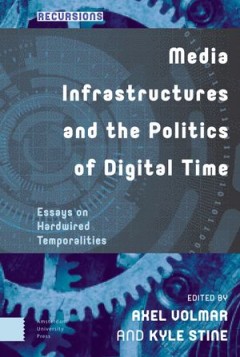
Media Infrastructures and the Politics of Digital Time Essays on Hardwired T…
Digital media everyday inscribe new patterns of time, promising instant communication, synchronous collaboration, intricate time management, and profound new advantages in speed. The essays in this volume reconsider these outward interfaces of convenience by calling attention to their supporting infrastructures, the networks of digital time that exert pressures of conformity and standardization…
- Edition
- -
- ISBN/ISSN
- 9789048550753
- Collation
- -
- Series Title
- -
- Call Number
- -

Latin American immigration ethics
Following an extended period of near silence on the subject, many social and political philosophers are now treating immigration as a central theme of the discipline. For the first time, this edited volume brings together original works by prominent philosophers writing about immigration ethics from within a Latin American context. Without eschewing relevant conceptual resources derived from Eu…
- Edition
- -
- ISBN/ISSN
- 978-0-8165-4426-4
- Collation
- -
- Series Title
- -
- Call Number
- 170.98 LAT

Media Infrastructures and the Politics of Digital Time Essays on Hardwired T…
Digital media everyday inscribe new patterns of time, promising instant communication, synchronous collaboration, intricate time management, and profound new advantages in speed. The essays in this volume reconsider these outward interfaces of convenience by calling attention to their supporting infrastructures, the networks of digital time that exert pressures of conformity and standardization…
- Edition
- -
- ISBN/ISSN
- 9789048550753
- Collation
- -
- Series Title
- -
- Call Number
- -
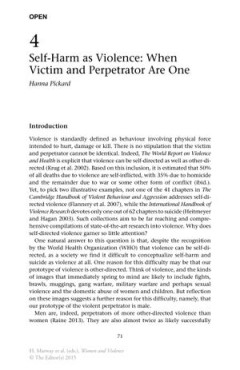
Self-Harm As Violence: When Victim and Perpetrator Are One
This edited collection explores the agency of women who do violence and have violence done to them. Topics covered include rape, pornography, prostitution, suicide bombing and domestic violence. The volume contributes to the philosophical and theoretical debate, as well as offering practical, social and political responses to the issues examined.
- Edition
- -
- ISBN/ISSN
- 9781137015112
- Collation
- -
- Series Title
- -
- Call Number
- 320.01 MAR s
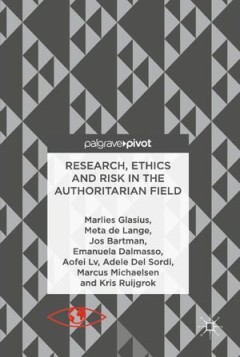
Research, Ethics and Risk in the Authoritarian Field
research ethics; authoritarian countries; research methodology; research in the authoritarian field; risk and field research; ethics and field research; authoritarianism; advice for field research; research transparency; research methods; mental impact of field research; planning for field research; dangers of field research
- Edition
- -
- ISBN/ISSN
- 9783319689654
- Collation
- -
- Series Title
- -
- Call Number
- 320.01 GLA r
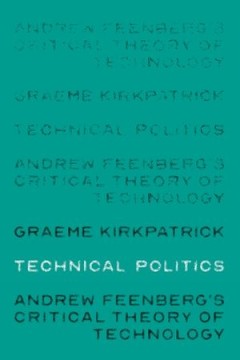
Technical politics Andrew Feenberg’s critical theory of technology
This is the first monograph devoted to the work of one of the foremost contemporary advocates of contemporary critical theory, Andrew Feenberg. It focuses on Feenberg’s central concept, technical politics, and explores his suggestion that democratising technology design is key to a strategic understanding of the process of civilisational change. In this way, it presents Feenberg’s intervent…
- Edition
- -
- ISBN/ISSN
- 9781526105349
- Collation
- -
- Series Title
- -
- Call Number
- -

A Translation of Lao-tzu’s Tao Te Ching and Wang Pi’s Commentary
During the Spring-Autumn period (722–420 BCE) and the time of the Warring States (480–222 CE), China was in great turmoil. Intellectuals and social reformers sifted through their wisdom and knowledge of China’s experiences up to then, attempting to find a solution to their situation.The Tao Te Ching, one of the foremost products of the era, is a metaphysical book, a source of the highest …
- Edition
- -
- ISBN/ISSN
- 9780472901388
- Collation
- -
- Series Title
- -
- Call Number
- 301 LIN t
 Computer Science, Information & General Works
Computer Science, Information & General Works  Philosophy & Psychology
Philosophy & Psychology  Religion
Religion  Social Sciences
Social Sciences  Language
Language  Pure Science
Pure Science  Applied Sciences
Applied Sciences  Art & Recreation
Art & Recreation  Literature
Literature  History & Geography
History & Geography